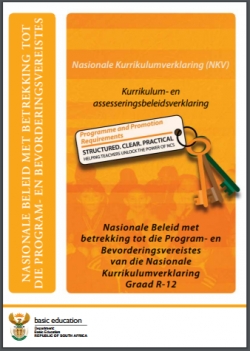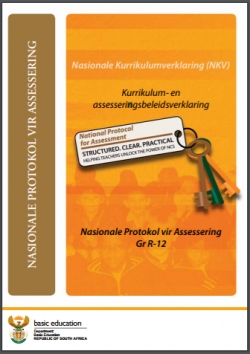LitNet Akademies 12(1):240-266 Integrasie van musiek en stories as 'n effektiewe benadering tot die ontwikkeling van fonologiese bewuswording vir Afrikaanssprekende graad 1-leerders

Type
E-Journal
Category
ECCE, Foundation
[ Browse Items ]
Publication Year
2015
Publisher
LitNet, Pretoria, South Africa
URL
[ private ]
Pages
26 p.
Subject
Early childhood education, Primary Education, Grade 1, Reading interventions, Afrikaans language, Literacy, Musical activities, Phonology, Phonological awareness, South Africa
Tags
Series Name
Abstract
National and international statistics reveal that reading literacy skills are regarded as a global problem. In South Africa this problem is assuming critical proportions, with learners in the foundation phase displaying serious reading problems. A possible reason for this is that phonology is not implemented as a prominent teaching strategy in grade 1. The omission of certain language skills, for instance phonological awareness, leads to poor performance in young learners. Ineffective methods of reading instruction also have a significant negative influence on learners’ reading literacy skills. A literacy and numeracy study conducted by the Department of Education of the Western Cape (Western Cape Department of Education 2006:1) showed that grade 3 learners are performing at a level two or three years below their chronological age. In 2011 the TIMM and PIRLS reports (Howie, Van Staden, Tshele, Dowse and Zimmerman 2012) showed that South Africa’s grade 4 and 5 learners rank 330th on the PIRLS scale, which is lower than the international PIRLS criterion. The low literacy levels therefore require urgent attention. The researchers of this study regard reading literacy as a critical aspect of success at school. They therefore set out to build a phonological music programme suitable for addressing reading literacy. A further objective was to implement the intervention programme in a grade 1 class and to observe and monitor its effects on the learners’ phonological awareness scientifically. The aim of this article is to report on empirical research carried out during the implementation of the intervention programme. The programme is an Afrikaans phonological intervention programme with stories, songs and other musical activities. The programme design was based on guidelines found in the literature on the development of phonological awareness of young learners, the role music can play in this regard, and personal experience gathered by the researchers as foundation phase teachers. The programme equips learners with appropriate phonological skills and enriches the learning experience in an educationally sound manner through the integration of musical activities. The strengthening of phonological awareness is directly linked to the improved literacy skills. During the acquisition of reading skills, learners participated in the lessons by listening to stories, learning songs and taking part in other musical activities. A qualitative, interpretivist approach and intervention research during a case study were used to explore, describe and explain the integration of music and stories. Data was collected by means of visual documentation, observation and interviews and by keeping a research journal. The data was analysed by means of coding and by identifying themes. A grade 1 class in a private school in Mpumalanga was purposively selected for the study. The school is part of a small rural community, and the class consisted of seven boys and girls aged six to seven years. The class was specifically chosen for its small learner numbers, as this made the implementation of the programme easier. The teacher and the learners were Afrikaans speaking. The learners had a basic knowledge of phonology. The study was conducted over a period of seven months. In this study, use was made mainly of Howard Gardner’s multi-intelligences, in particular the musical and linguistic intelligences (Gardner 1983). Russell-Bowie’s (2006) integration of the arts and literacy also served as a theoretical motivation of the design of the programme and the research. He strongly recommends the integration of music into other subjects. Music contributes to the development of effective literary skills through participation in enjoyable activities. Gardner (1983) found that learners benefited when teachers involved different intelligences during presentations. Teachers with or without musical acumen or skills can teach music, but more specialised and experienced teachers are required when advanced music skills and concepts need to be taught. The phonemes were easily instructed through poems, rhythm and rhyme. Interest in phonological awareness was aroused by a range of activities that also tickled learners’ curiosity. The learners were exposed to voice production and pitch as well, as the songs in the KKK programme were written in several keys. The learners enjoyed the songs in the KKK programme. Songs that were matched to the story were composed to emphasise the phonemes in order to accelerate phonemic development. The songs were short and very effective. Phonemes were not simply learned; by dramatising a story or song, the learners were enabled to identify with each phoneme while they were learning the phonemes as they played (Wessels and Van den Berg 1999:162). The learners were able to express themselves in a safe classroom environment, without their sincere efforts being criticised. The researchers noted that learners’ relationships with one another improved during the implementation of the programme. Further findings were that the learners in this study possessed the ability to respond to music, make music and enjoy it. After the application of the programme, some conclusions could be drawn. The main conclusion of the research was that music can play a positive role in the acquisition of phonology as a reading literacy skill in grade 1 Afrikaans-speaking learners.
Number of Copies
1
| Library | Accession No | Call No | Copy No | Edition | Location | Availability |
|---|---|---|---|---|---|---|
| 1 | Pretoria, Gauteng, South Africa | Yes |

